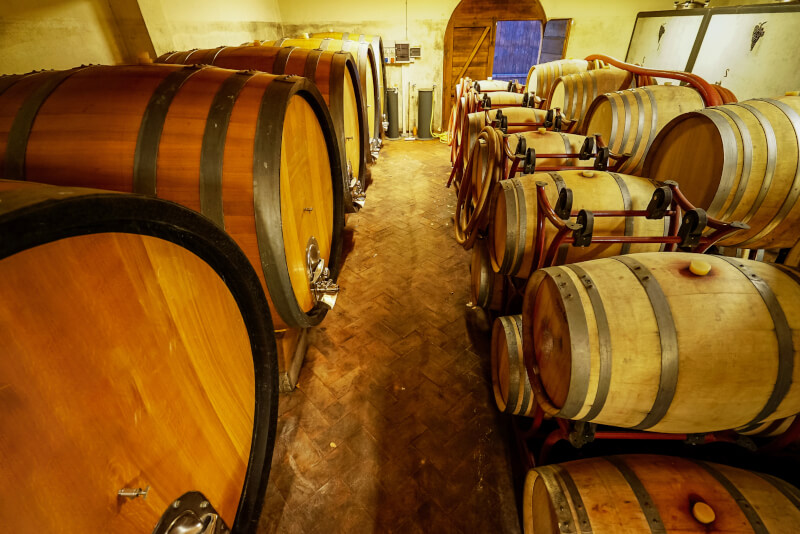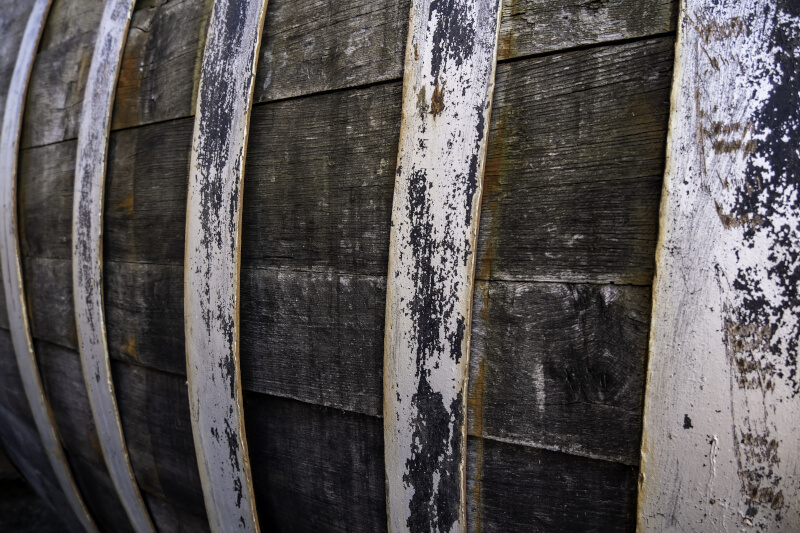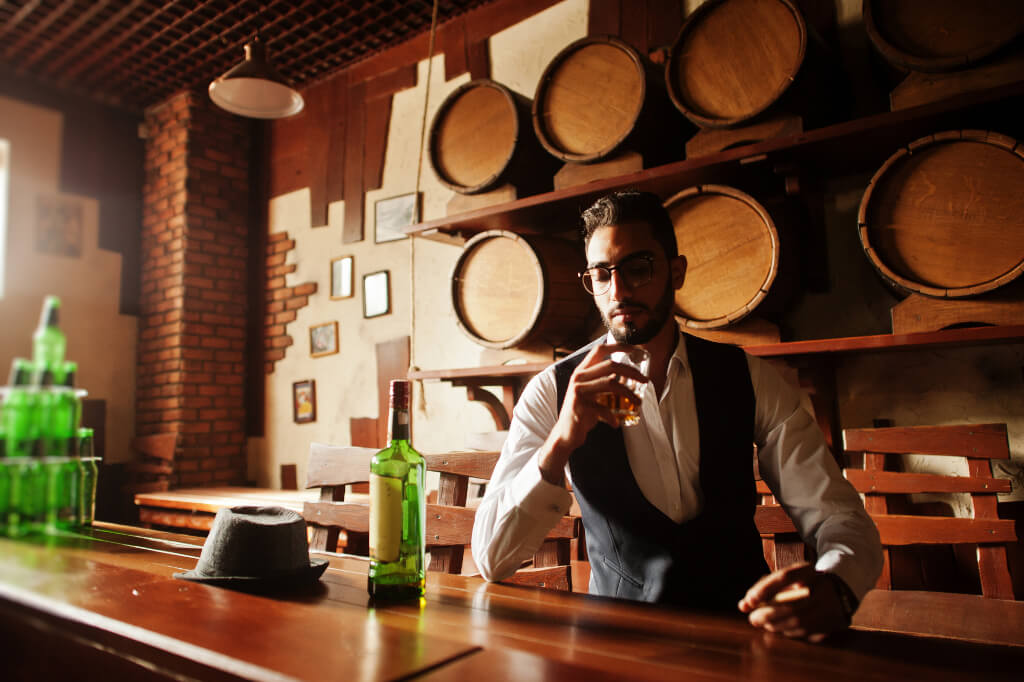Have you just discovered whiskey? Need a present for a pal? It’s a fun and challenging adventure to search for the ideal bottle. Quite simply, one can choose from an abundance of possibilities. What distinguishes small-batch whiskey from single-barrel whiskey, if all whiskies are made from grain, water, and yeast? In this article, you’ll learn all about the many kinds of whiskey and how they’re made so you can choose the one that’s right for you.
Is There a Difference Between a Small Batch and a Single Barrel of Whiskey?

No. While single-barrel whiskey is aged in only one barrel, small-batch whiskey is produced using several barrels. Each one of these whiskies is a high-end offering from its respective distillery, and as such, has a heftier price tag. This is because the whiskies contained within each barrel are hand-selected by the distiller for their exceptional qualities. Let’s get into some more depth so you can understand what sets a small batch apart from a single barrel.
The Small-batch Definition
Small batch refers to American whiskey or bourbon that is aged in a variety of handpicked barrels. To create a superior variant, the best barrels are handpicked for their exceptional features and then blended. Whiskey and bourbon, in general, are typically created utilizing a large number of barrels of varying quality, color, and age. This method, which uses an extensive variety of casks to create a homogeneous whiskey at a distillery, is ideal for mass production.
However, small-batch whiskey is made from a far more selective and limited number of barrels. (As few as 30 barrels, if that’s what the distillery wants.) The distiller may produce a superior whiskey using this streamlined blending technique than they would be able to use their regular method of combining a broader spectrum of their casks.
Imagine the ‘Best of the Best’ Rolled Into One
When making whiskey in tiny batches, it’s crucial to use a variety of casks because each one imparts a different flavor. Because no two barrels contain the same whiskey, each bottle is unique. Blending ingredients meticulously enables the making of something truly unique. Distillers can create a premium whiskey blend from “lost” casks by selecting a small number of individual casks from their warehouse.
There is no statutory definition or regulations for what constitutes a “small batch,” hence the phrase remains ambiguous. Small batch is a word used by distilleries all over the world, especially in the United States and Scotland, to refer to unique bottles or limited edition series of their spirits.
Craft whiskies and “boutique” whiskies are other names for small-batch whiskey because of the extra time and care that goes into choosing which casks to combine. In addition, when compared to the core collection or single barrel expressions, those made in small amounts can have a more nuanced scent and flavor profile. That’s why they’re a great option for people who love whiskey but are looking for variety.
In This Context, What Does “Single Barrel” Mean?

The term “single barrel” is used in the United States to describe whiskey or bourbon that comes from a single barrel. This indicates that the whiskey was not blended with other varieties. The term “single cask” might refer to one of two items in Scotland:
- A whiskey that has been produced and aged in a single cask
- The whiskey has been aged in at least two different casks without being combined.
‘Single barrel whiskey’ or single cask whiskey’ is typically more expensive than standard bottles, as you may have seen. This is because only those barrels and casks that exhibit exceptional qualities in terms of color, aroma, body, and flavor are chosen by hand from among those produced by a given distillery. Furthermore, since single-cask whiskey is typically bottled at cask strength, it has a higher alcohol by volume (ABV) percentage and is therefore taxed at a higher rate.
Single-barrel whiskey is selected according to the strict criteria of a master distiller. The spirit must have a distinct flavor that sets it apart after careful analysis and tasting, making it an exceptional or unusual example of what the distillery typically produces.
Do You Prefer Single-barrel or Small-batch Production?
whiskey from a single barrel or a tiny distillery has its subtleties. Due to the careful blending of different barrels, small-batch whiskey is more probable to have a well-rounded and intricate flavor profile. Single-barrel whiskey can be quite expensive, while small-batch bottles are often more affordable. Single-cask or single-barrel whiskey, on the other hand, will only ever taste as complex and unique as the cask it was aged in. Therefore, single-barrel bottles may lack the complexity of other standard bottles, but they may also be rare, interesting, and special.
It’s a tough question to decide between small batches and single barrels. Your tastes and the specific whiskey in question will determine the answer. Small-batch whiskeys are more likely to have a well-balanced flavor due to their careful blending, making them a good choice for whiskey novices. If you’re an experienced whiskey drinker or just want to try something different, a single-barrel infusion might be better for you.
It’s Your Preference, But Now You Know The Difference
Whiskey that bears the “small batch” label has been painstakingly crafted by a master distiller from a select number of exceptional casks. To make a unique “boutique” bottling, these whiskeys are blended to create a “super blend” that blends the best of each cask’s flavor qualities. In contrast to the standard products from a distillery, small-batch whiskey is made with fewer casks and more careful attention to detail.
Another category of high-end whiskey is single-barrel whiskey, which is distilled and aged in a single cask. When compared to a distillery’s standard offerings, these spirits are often considered superior because of their distinctive or exceptional properties. Hopefully, you’ve gained a better appreciation for the nuances of whiskey production after reading this article. You may compare these high-end whiskies and make an informed decision about your next purchase.
Common Questions About Single-Barrel and Small-Batch Whiskies

Do the laws define a “single barrel?”
The phrase “single barrel” has not been formally defined by law in the United States by the Alcohol and Tobacco Tax and Trade Bureau (TTB). Single-barrel whiskey is the whiskey that has been bottled and sold directly from a single barrel without going through a blending process. The word “single cask” is likewise legally undefined in Scotland. Therefore, Scotch distilleries can market whatever whiskies they like and call “single cask” if they so like.
Can you explain why single-barrel bourbon is preferable?
Single-barrel bourbon has the advantage of tasting exactly as it did when it was aged in the barrel it was bottled from. Because no two barrels are identical, single-barrel bourbons might have drastically different hues, scents, and tastes than the distillery’s standard offerings. Single-barrel bourbons are carefully chosen for their exceptional qualities. Because of this, they may be distinctive in some way, such as being limited in quantity or being from a specific year, making them desirable as collectibles.
What are the characteristics of a small-batch whiskey?
When making small-batch whiskey, the master blender at the distillery chooses only the finest casks to use. whiskey bottled in small batches is considered a premium product since it receives more care and attention than the distillery’s standard expressions.
The best features of each barrel profile can be combined into one exceptional “super blend” by blending several cask varieties or ages while making a small batch. This allows them to produce a whiskey that is both more refined and specific than their standard offerings, which are often blended from a far larger variety of casks.
Is it true that whiskey made in smaller batches tastes better?
Your tastes and the whiskey in question will determine the best answer. whiskey made in a small distillery from a careful selection of casks is often considered to be of higher quality. To put it another way, a small batch is the distillery’s most refined and refined expression. It’s not necessarily superior, but it was made with more care and consideration than before.
Do smaller barrels develop taint more quicker?
Since time is constant, smaller barrels do not age quicker. whiskey held in smaller barrels or casks, on the other hand, benefits from accelerated maturation thanks to greater contact with the wood. whiskey aged in smaller barrels gains color and flavor from the wood more quickly than spirit aged in larger barrels.
The maturation of whiskey depends on several factors, including the barrel’s size, substance, age, and charring. But time is time, no matter the circumstances. There is no advantage to using a smaller barrel to age whiskey for 10 years as opposed to a larger one.

